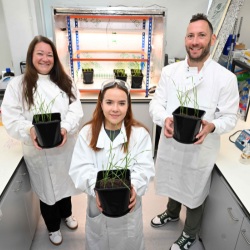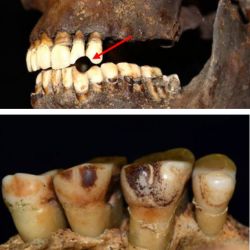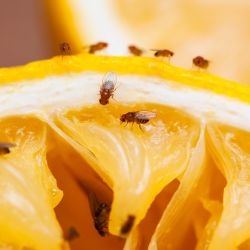Northumbria expands results day support for students
Northumbria University is expanding and enhancing the support it provides to students receiving…
International
Northumbria’s global footprint touches every continent across the world, through our global partnerships across 17 institutions in 10 countries, to our 277,000 strong alumni community and 150 recruitment partners – we prepare our students for the challenges of tomorrow. Discover more about how to join Northumbria’s global family or our partnerships.
View our Global FootprintBusiness
The world is changing faster than ever before. The future is there to be won by organisations who find ways to turn today's possibilities into tomorrows competitive edge. In a connected world, collaboration can be the key to success.
More on our Business ServicesResearch
Northumbria is a research-rich, business-focused, professional university with a global reputation for academic quality. We conduct ground-breaking research that is responsive to the science & technology, health & well being, economic and social and arts & cultural needs for the communities
Discover more about our ResearchAlumni
Northumbria University is renowned for the calibre of its business-ready graduates. Our alumni network has over 253,000 graduates based in 178 countries worldwide in a range of sectors, our alumni are making a real impact on the world.
Our AlumniWheat; friend or foe?
Victor Zevallos 28/09/2023
Dietary wheat has become the most widely consumed food staple in Western and other societies. Wheat has been grown, bred, and progressively introduced into our diet beginning approximately 6000 years ago in central Europe. During the last century, wheat has been systematically bred for high yield, reducing costs, increasing availability, and promoting its use in a broad range of dietary products such as bread, pasta, cakes, meat replacements and other related items.
Wheat is a good source of nutrients, particularly proteins (9-13% of total flour) that can be separated into gluten and non-gluten fractions (85% and 15%, respectively), gluten is a widely used food ingredient due to its unique processing properties, allowing to improve texture of refined foods. Although gluten is not harmful for healthy people, ~1% of most populations are affected by coeliac disease, where gluten proteins trigger an inflammatory response in genetically predisposed individuals, leading to small intestinal damage and a wide range of associated comorbidities.
Wheat proteins have a strong inflammatory potential and apart from respiratory and nutritional allergies, partially digested wheat proteins can activate cells of our immune system, triggering an inflammatory cascade affecting organs such as liver, lungs and even the brain.
Recently, we have identified non-gluten wheat proteins (amylase trypsin inhibitors) as strong activators of immune (myeloid) cells, leading to exacerbation of central nervous system inflammation and worsening of clinical symptoms in a preclinical model of multiple sclerosis. These results indicate that the average Western wheat-based diet could lead to exacerbation of inflammation in the brain, supporting the importance of the gut-brain axis in inflammatory central nervous system diseases.

Northumbria University is expanding and enhancing the support it provides to students receiving…

With the global population expected to reach 10 billion by 2050 and crop yields declining annually,…

An Assistant Professor at Northumbria University won the Royal Society of Chemistry’s Award…

Researchers from Northumbria University have discovered that smokers have tell-tale signs of…

Northumbria University has been named Higher Education Institution of the Year at a prestigious…

Two biomedical sciences researchers from Northumbria University have been awarded grants to…

The Spring 2025 edition of Northumbria University’s newspaper is available to collect on campus…

Scientists have discovered that flies can demonstrate play-like behaviour – the first time…

Northumbria University

Northumbria University
-